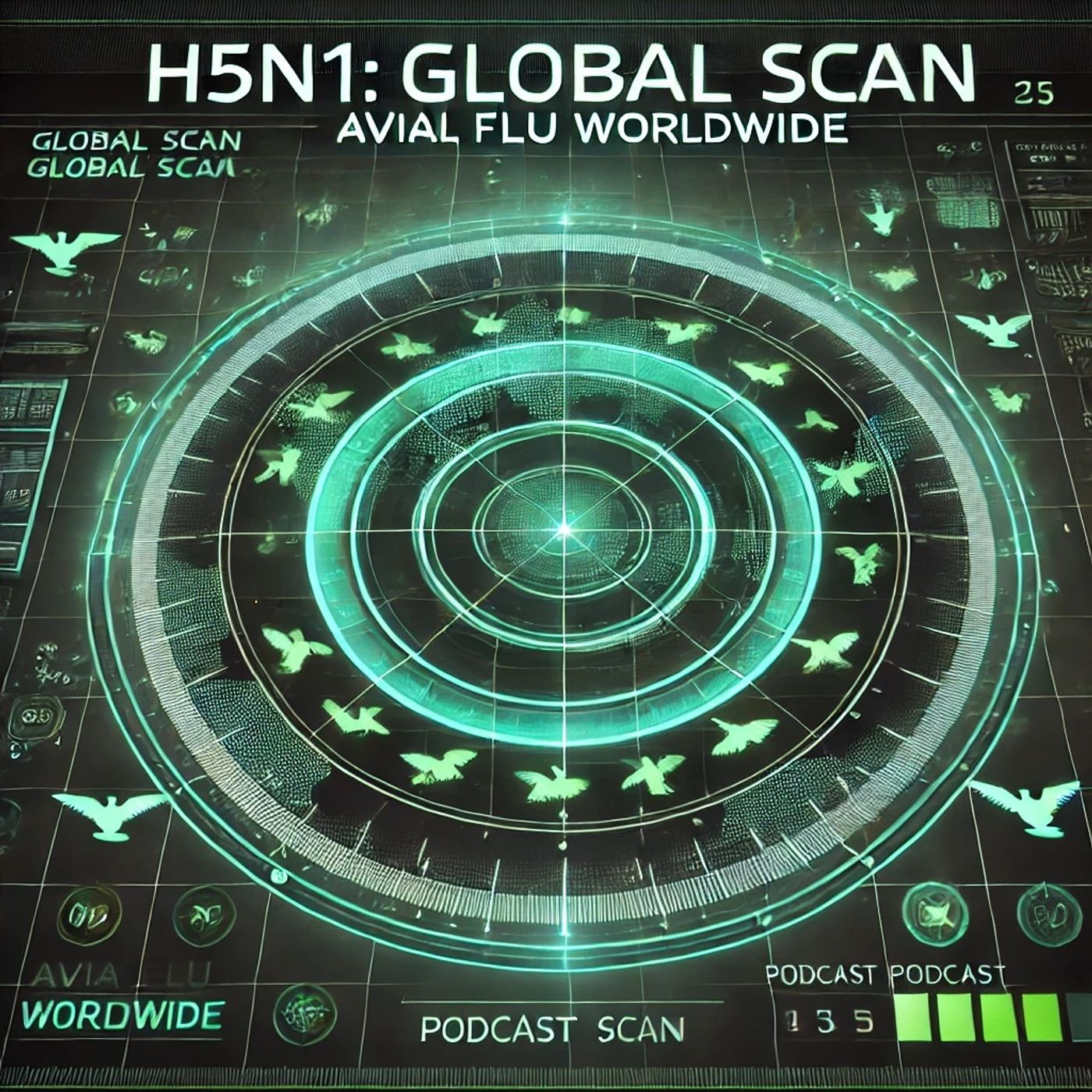Podcast Episode Details
Back to Podcast Episodes
Global H5N1 Outbreak Spreads Across Continents: 964 Human Cases and Mounting Challenges in Livestock and Public Health
Welcome to H5N1 Global Scan: Avian Flu Worldwide, your international look at the evolving impact of avian influenza on people, animals, economies, and public health systems.
Since early 2020, the H5N1 avian flu virus has swept across five continents, sparing only Australia, with outbreaks in birds, mammals, and now humans reported in dozens of countries. According to the Pan American Health Organization and World Health Organization, as of January 2025, 964 human cases with 466 deaths have occurred across 24 countries, marking a sobering 48% case fatality rate.
Let’s start with a continental breakdown. In the Americas, H5N1 outbreaks surged after the virus’s arrival via migratory birds. By March 2025, 19 countries had reported nearly 5,000 outbreaks in birds and mammals—including Argentina, Brazil, Canada, Mexico, the US, and more. Over seventy human cases have been documented, most in the United States after exposure to infected animals, with notable outbreaks in US dairy cattle in 17 states disrupting local agriculture and trade.
In Europe, H5N1 has caused significant bird mortality, especially in wild and domestic poultry. The United Kingdom faced an outbreak affecting sheep and farm workers, leading to major culls. In Asia, authorities in China and Southeast Asia battled both new and recurring H5N1 strains. Cambodia and India each reported fatal human infections in early 2025. Genetic research in the Mekong region revealed viral reassortment, potentially increasing zoonotic risk according to the Food and Agriculture Organization’s April 2024 report.
Africa and the Middle East have also seen new spillover events, though human cases remain rare, largely thanks to active surveillance and poultry culling. In Oceania, Australia is currently H5N1 free.
Turning to research and coordination, international agencies like the WHO and FAO have ramped up monitoring, coordinating global data sharing and rapid response frameworks. The WHO Western Pacific office issued a September 2025 update emphasizing enhanced surveillance and collaboration to detect human cases, while the FAO’s July 2025 report underscores the importance of linking animal and human health surveillance.
This cross-sector approach has guided major international collaborations to track how H5N1 evolves as it passes through birds, cattle, and even marine mammals. Johns Hopkins University reports that US human cases fell sharply from 2024 to 2025, thanks to containment and monitoring, but experts caution against relaxing controls.
Trade impacts have been immediate. Outbreaks have triggered export bans—like the Philippines blocking poultry imports from Japan, Belgium, and France—and forced the destruction of millions of birds, causing egg and meat shortages in North America, Europe, and Asia. Such trade disruptions highlight the need for transparent, harmonized international policies.
On vaccines, global progress remains mixed. The United States, China, and the EU have accelerated the development and deployment of both animal and prototype human H5N1 vaccines, but manufacturing, distribution, and approval challenges persist. Nations like the US and UK rely heavily on culling and biosecurity, while China and several Southeast Asian nations promote mass animal vaccination in high-risk zones.
In summary, H5N1 remains a formidable global challenge at the animal-human-environment interface. Coordinated surveillance, research, and rapid vaccination are essential, but so are international solidarity and transparent trade policies.
Thank you for tuning in to H5N1 Global Scan: Avian Flu Worldwide. Join us next week for another international spotlight. This has been a Quiet Please production—find me at Quiet Please Dot A I.
For more http://www.quietplease.ai
Get the best deals
Published on 2 weeks ago